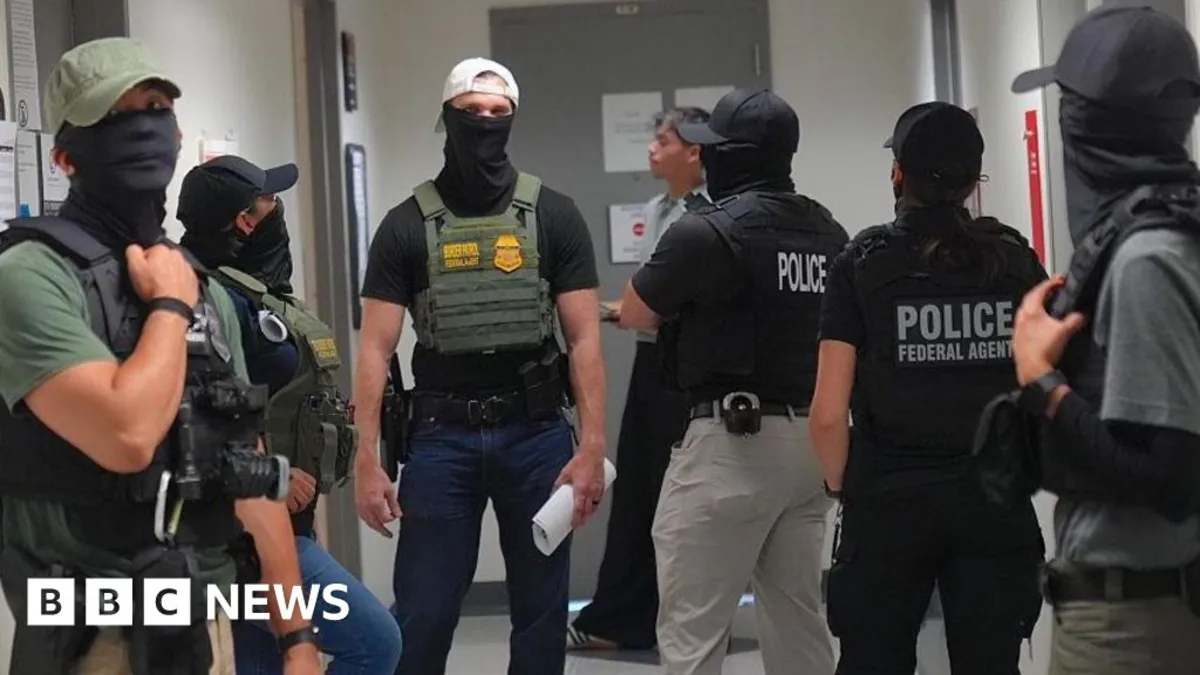
In a significant move towards enhancing transparency and accountability in law enforcement, California Governor Gavin Newsom has signed a bill that prohibits local and federal law enforcement officers, including those from US Immigration and Customs Enforcement (ICE), from wearing face masks while on duty. This legislation, which is set to take effect on January 1, 2026, is part of a broader initiative aimed at safeguarding residents from what Governor Newsom has termed "secret police" patrolling the streets.
The impetus for this ban stems from concerns over federal agents donning masks during recent immigration raids in Los Angeles. According to US Attorney Bill Essayli, a Trump appointee, California lacks jurisdiction over federal operations, asserting that the new law will not hinder ICE’s activities. He emphasized that agents will continue to protect their identities as needed.
California's new legislation aims to restore community trust by ensuring that law enforcement officers are identifiable while performing their duties. Senator Scott Wiener, who represents San Francisco and authored the bill, stated, "No one wants masked officers roaming their communities and kidnapping people with impunity." He further affirmed California's commitment to uphold the rule of law and protect basic freedoms.
While the law imposes a ban on face coverings, it does make exceptions for undercover agents, masks required for health and safety (such as during disease outbreaks or wildfires), and tactical gear necessary for specific law enforcement operations. Additionally, a new bill mandates that law enforcement officials must identify themselves by name and badge number when carrying out their duties.
This legislation follows a recent Supreme Court ruling that allows immigration enforcement actions in Los Angeles to proceed without the requirement of reasonable suspicion regarding a person's immigration status. This decision has raised concerns as it permits officers to question and detain individuals based solely on factors such as race, language, or occupation while a legal challenge to these immigration raids is ongoing.
In a bid to further protect vulnerable communities, Governor Newsom also signed laws restricting federal agents from entering school grounds without a warrant, court order, or judicial subpoena. Parents will be notified if officers arrive at their children’s schools, and student information along with classrooms are now protected from unwarranted federal intrusion. Non-public areas of hospitals and emergency rooms are similarly off-limits to officers lacking judicial warrants or court orders.
Governor Newsom remarked, "Immigrants have rights, and we have the right to stand up and push back." This statement reflects the administration’s stance on ensuring that immigrant communities feel safe and secure within California.
The Department of Homeland Security's Assistant Secretary, Tricia McLaughlin, condemned California's new legislation, describing it as "despicable" and a blatant attempt to jeopardize the safety of federal officers. She highlighted that ICE agents and other federal law enforcement personnel risk their lives daily, and such rhetoric contributes to an increase in assaults against them.
This legislation is not an isolated incident; it represents a growing trend of local officials challenging federal immigration policies. For instance, in August, the mayor of Chicago enacted an order outlining the city’s strategy to resist potential immigration crackdowns prompted by the Trump administration.
As California moves forward with these new laws, the implications for law enforcement practices and immigrant rights continue to unfold, setting a precedent that may inspire similar actions across the nation.